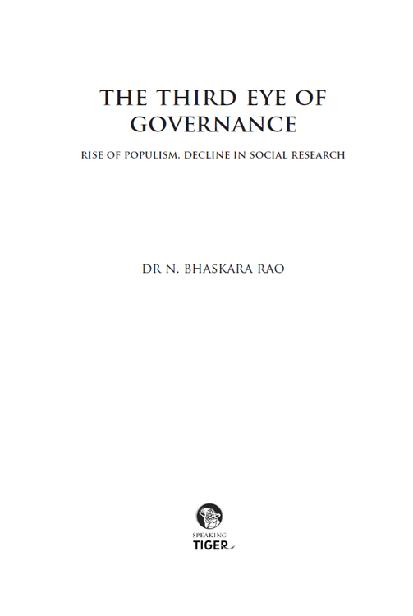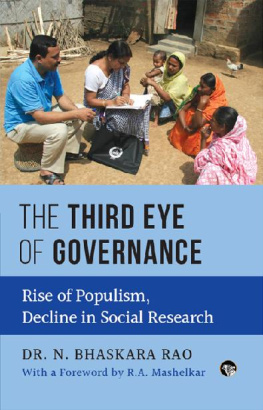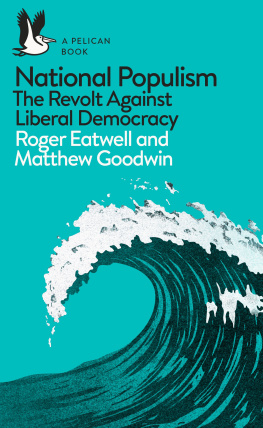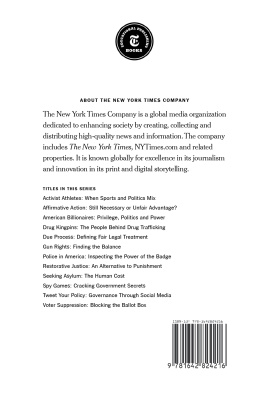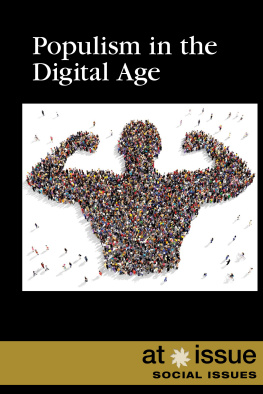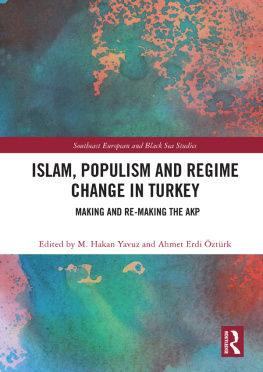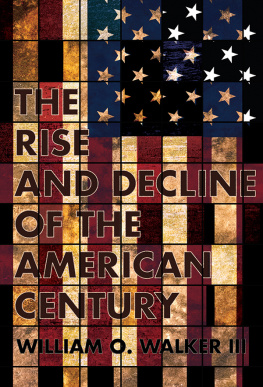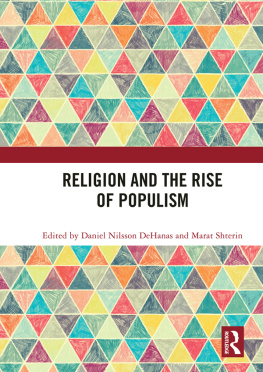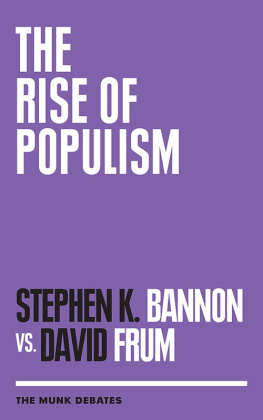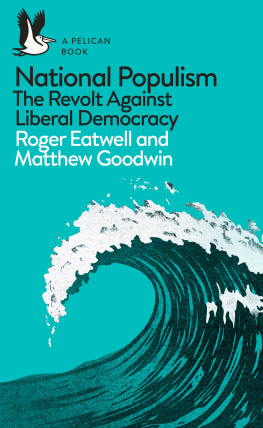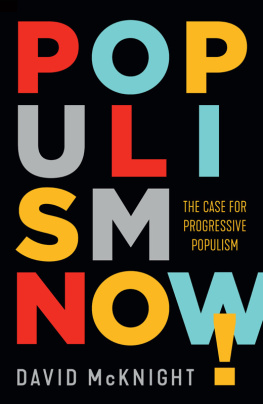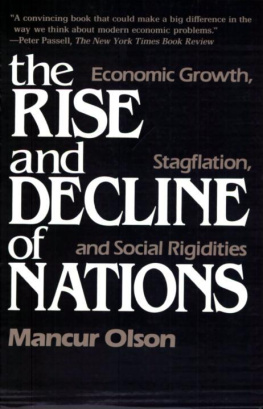FOREWORD
Dr Bhaskara Rao has been Indias preeminent public opinion analyst, applied social researcher, and a pioneer in social audit and countrywide surveys. He has played a crucial leadership role in premier research organisations such as ORG and CMS, as well as in ministries of the Government of India. This book captures his incredible insights and his invaluable wisdom concerning our present day challenges in public policy making and execution, remarkably articulated in the title of his book itself, The Third Eye of Governance: Rise of Populism, Decline in Social Research.
Dr Rao begins by reflecting on how India pursued planned development and shows how, in the early years, India had understood the relevance of public policy based on research and evidence which are essential elements for socio-economic transformation.
Dr Rao traces the origins and scope of public policy research through his own incisive lens. He powerfully articulates the relevance and role of research in formulating policies, designing programmes, optimising schemes and their utilisation, and ascertaining their impact. Not only that, he also lays out a roadmap to revive the social sciences as per the trajectory of governance, development, and democracy.
The significance of enlightened political leadership cannot be denied. In that context, he provides a nuanced discussion of the sensitivity towards research demonstrated by the Prime Ministers of India over five decades of Indian history.
Dr Rao emphasises that political parties cannot be the final arbitrators of policies and priorities, overriding citizens, communities, and civil society and that public opinion and consensus building play critical roles. The idea of field surveys, feedback, data, and analysis as a form of an interlocutor is as important as scientists, technocrats, and economists operating with complete freedom of thought. Strong institutions for research, data, and statistics with autonomy and independence are critical for economic and social development, which includes citizen participation and empowerment.
Dr Rao laments that evaluative research (not just supportive research) is critical but there has been a decline in robust data-based analysis and independent research. He observes that key reasons for this decline include politicisation of governance; tendency towards populism by prioritizing image building; short-sighted decisions, quest for control, command, and centralisation; shift in the balance of power; and a decline in the representative character of parties. He also analyses the role of the influx of foreign consultants with vested interests.
Dr Raos personal analysis of what he terms as data crisis or crisis of data in 201819 offers many lessons for the future. In recent times, he points out, there has indeed been a cry for credible data and impartial study of data. World renowned policymakers such as Dr Vijay Kelkar have even suggested that the National Statistical Commission (NSC) should be given an autonomous constitutional status on the lines of the Election Commission of India.
Having summarised the essence of Prof. Raos book, allow me to take the liberty of making three personal statements.
First, some views on policy making in a broader context. These have been elaborated in our recent book (co-authored with Ravi Pandit) published earlier this year, titled Leap frogging to pole vaulting: Creating the magic of radical yet sustainable transformation . We have shown that executable or actionable ideas require the support of four levers, public policy being just one of these. The four levers are technology, policy, social engagement, and economic model.
Technology, because we are unlikely to see successful solutions for any of our big problems without technological interventions. Policy, because a bold, consistent, and enabling regulatory environment with adequate government support is a critical imperative for driving positive change. Social engagement, because the people at large have to accept policy intervention, be a part of the change, and be its stakeholders to finally accept and affect change. And finally, economic model is important because only a solution that makes economic sense to all the stakeholders involved will survive. We call this a STEP model. We have illustrated in the book the interactive and strong coupling of these four levers, along with demonstrating how even one level of the STEP missing can lead to failure. I do believe this view and analysis is complimentary to Dr Raos comprehensive articulation on policy making and execution in the present book.
Second, I myself have learnt some lessons during my involvement in policy making in my own areas of expertise, namely science, technology, and innovation. I have participated in this as a member of the Science Advisory Council to the Prime Minister of India for over three decades since the mid-80s. I have also chaired 14 so-called Mashelkar Committees, many of them involved policy making in diverse fields, from environment to education to agriculture to health to intellectual property rights. Take, for instance, the National Auto Fuel Policy Committee of the Government of India that I chaired in 2003 where, among other things, a road map for new and tighter emission norms for India was laid down.
There was a strong perception at the time that the improvement in air quality in Delhi was solely due to the introduction of CNG in buses. We established a group of leading national research laboratories who invested about 10,000 man hours on data collection and research. It was concluded that CNG had just contributed to slightly over 10% improvement, while the rest had resulted from new engine technologies, better fuel, etc. So evidence based analysis is critical, as Dr Rao emphasizes in this book.
Third, our experience at Pune International Centre (PIC). This is a think tank that is currently led by me and Dr Vijay Kelkar who himself provides a visionary personal leadership to PICs policy research unit. Since its formation in 2011, PIC has introduced approximately 25 PIC policy papers addressing issues ranging from better corporate governance to containing black money to FDI 2.0 to reforming the GST to accelerating agriculture growth.
PICs strategy is to deliberate, engage, and influence. Although it is early days, we have seen some encouraging success with PIC policy papers influencing national and state level policies in some respects. The role for many such truly independent think tanks in policy making, as Dr Rao has championed in the book, cannot be overemphasised.
